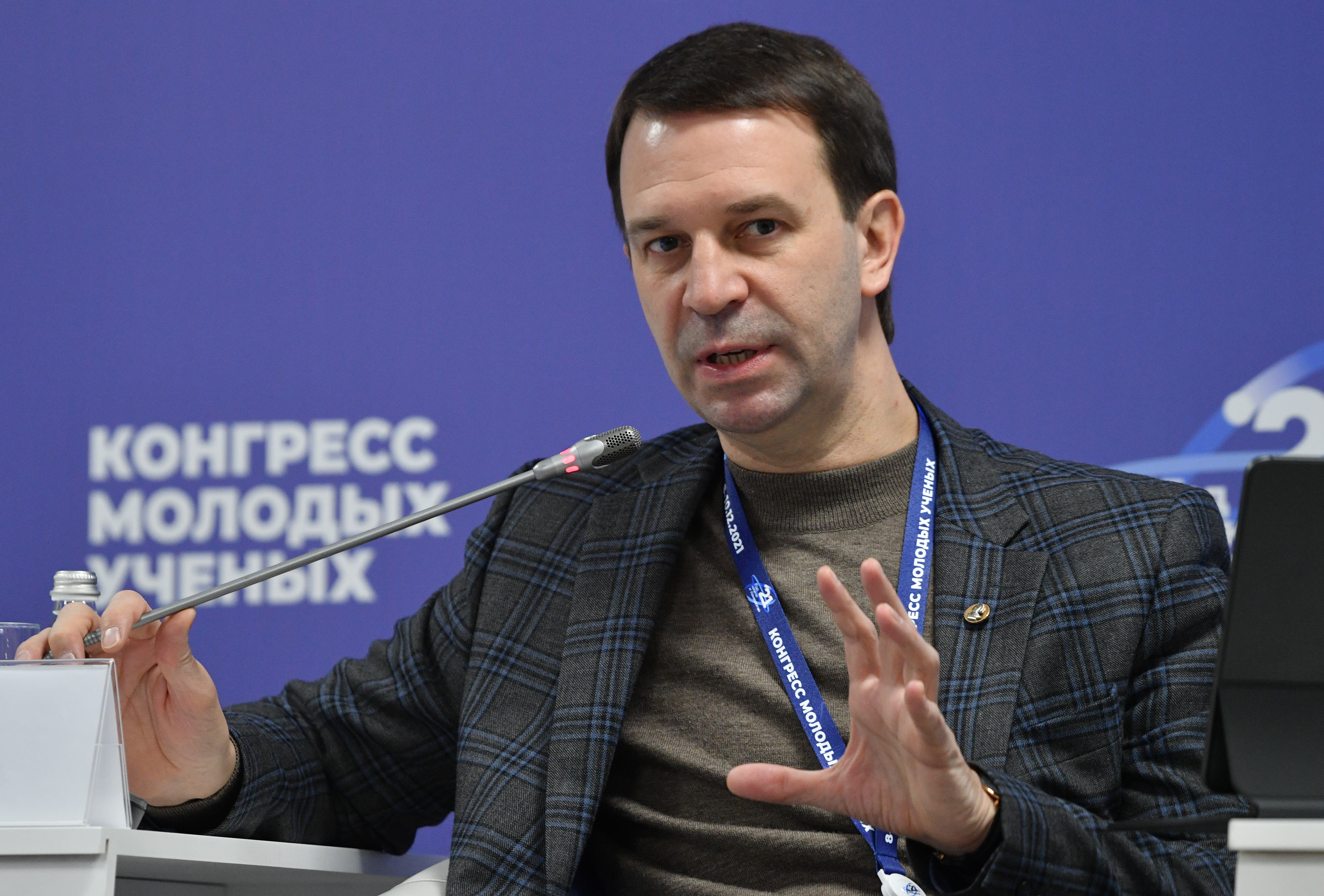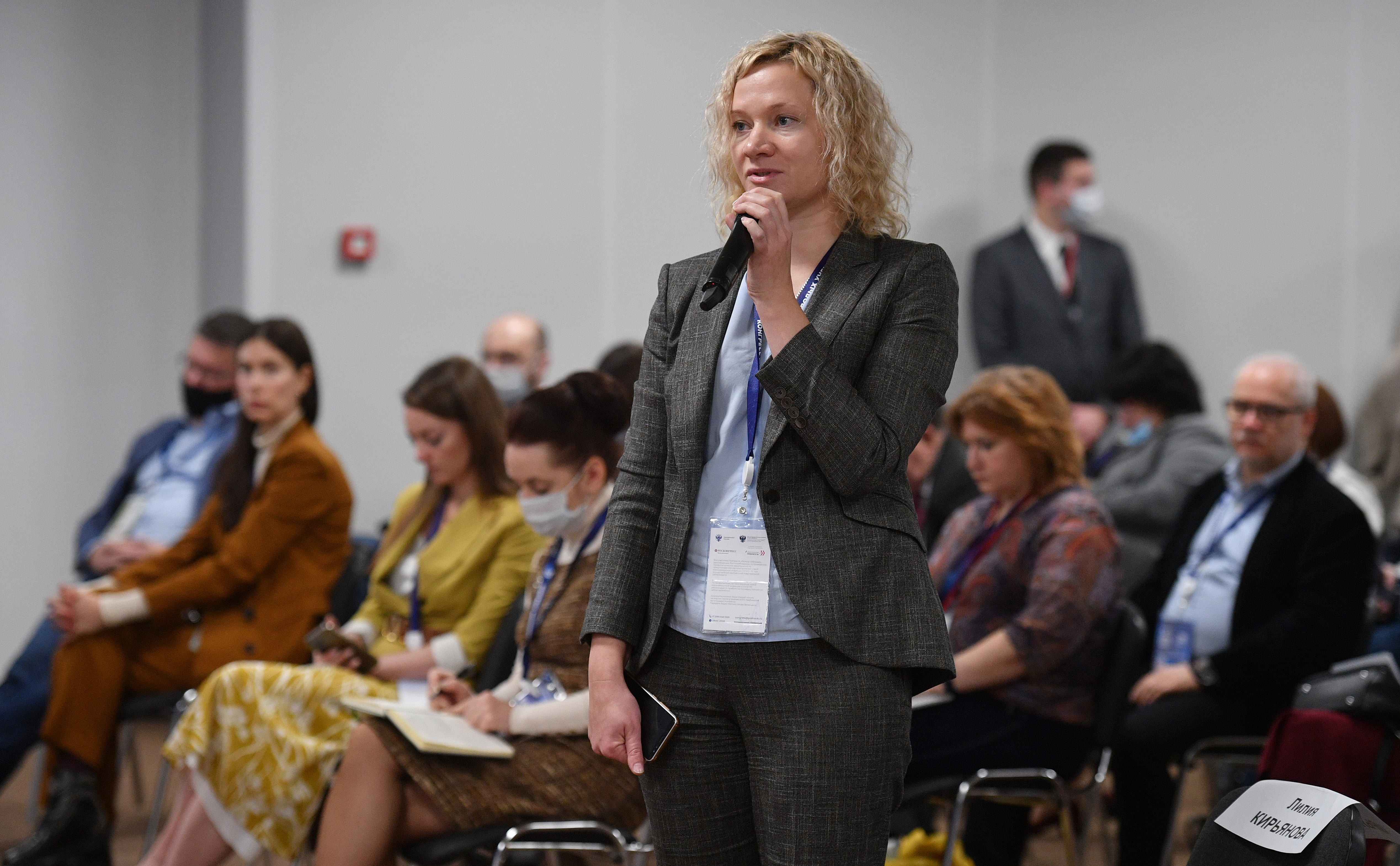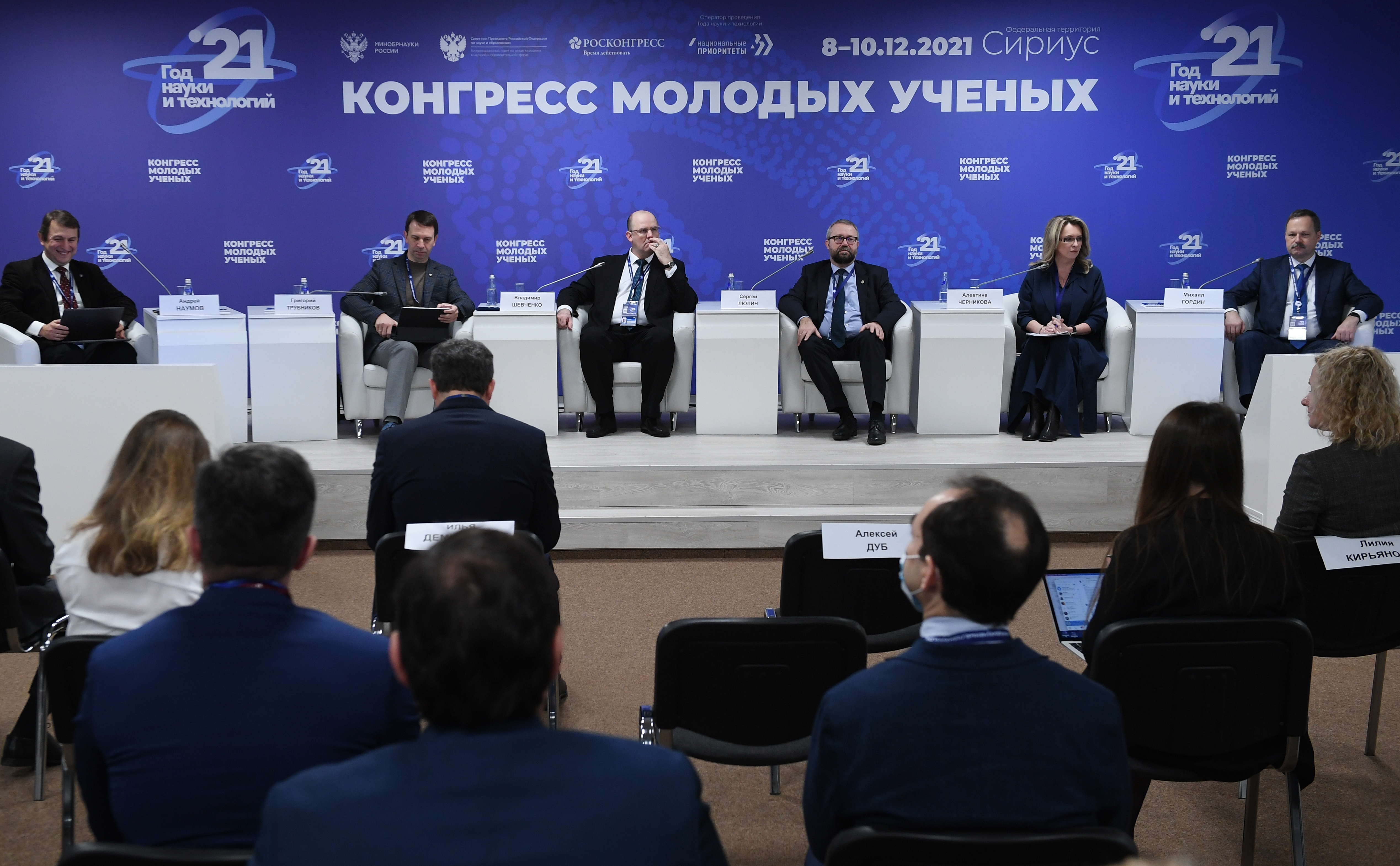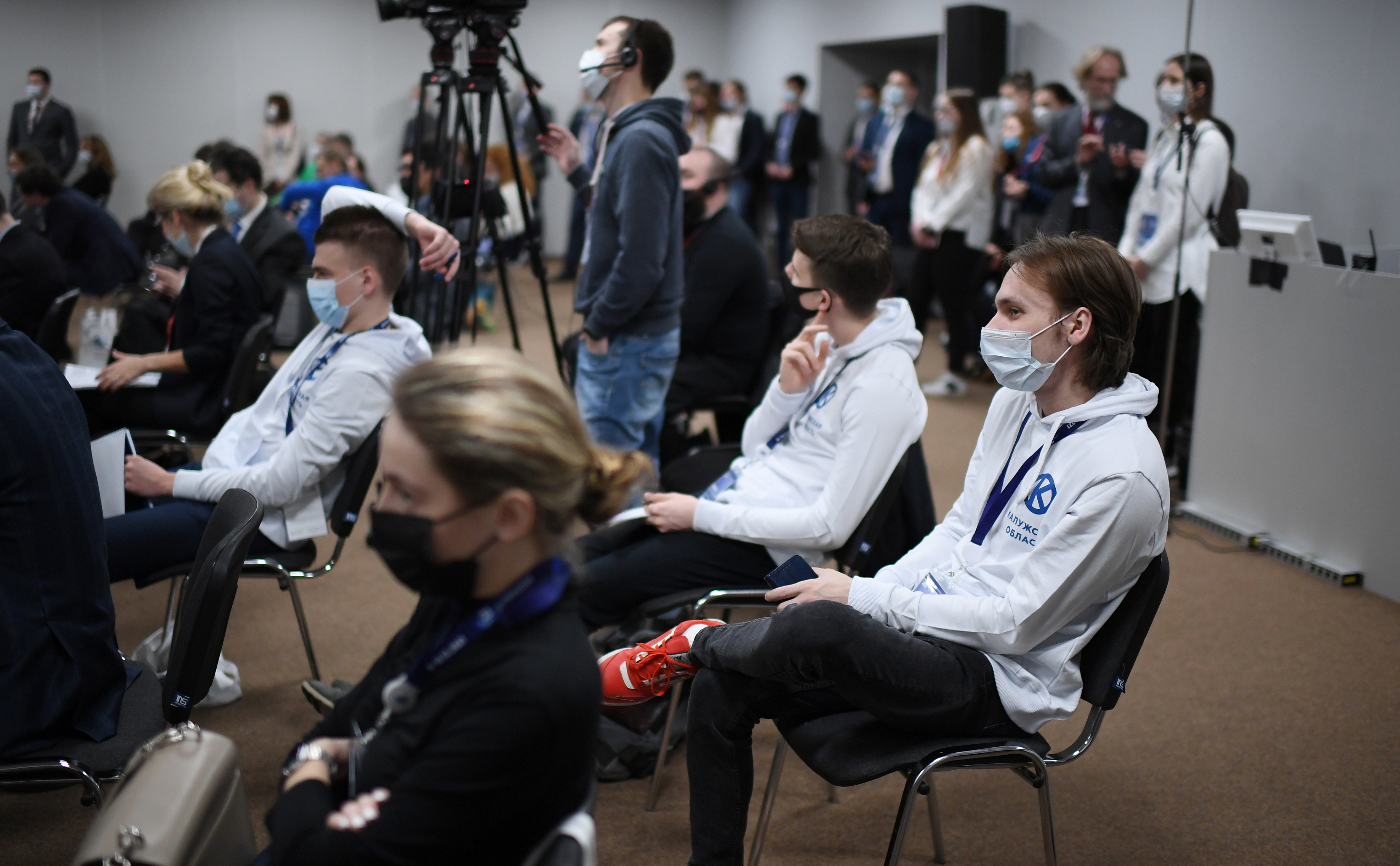Universities need development at science-driven territories
News, 09 December 2021
On 9 December 2021, within the track “Staff and human resources” of the Young Scientists Congress in Sochi, there was a discussion “Development of human capital in science-driven territories”. JINR Director Grigory Trubnikov took part in it.
The discussion had a round-table format. Heads of leading technical universities of the country, representatives of the academic field and relevant departments discussed models of a network university of fundamental science aimed to unite leading Russian universities with science cities, such as Dubna, Sarov, Chernogolovka, and other high-tech territories.
 Photos by Konstantin Mikhalchevsky / Photohosting of Young Scientists Congress
Photos by Konstantin Mikhalchevsky / Photohosting of Young Scientists Congress
Despite the maximum possible presence of scientific organizations and high-tech industries, science-intensive territories do not have universities. It causes problems for attracting personnel and transferring the unique scientific experience.
The JINR Director cited particular figures: according to the joint assessment conducted by JINR, the NRC “Kurchatov Institute”, and heads of Russian megascience projects, 150-200 young scientists and engineers are necessary annually in Russia. At the same time, only European JINR Member States require another 50-60 people each year. The Special Economic Zone “Dubna” and its high-tech residents estimate their need for specialists at about 300-350 specialists per year. Only 30-40 % of graduates from technical universities follow their specialities. It is necessary to increase this rate up to 60-70 %.
“To make specialists out of students, they should be integrated into large-scale scientific organizations starting from the third year of education. There is no need to compete with leading universities of the country but to be complementary to the existing educational system and develop narrow specialities necessary on a particular territory. To train specialists together, to create this architecture together, to manage and distribute the staff,” Grigory Trubnikov highlighted. Thus, for JINR, as a large-scale international scientific centre, located in the Moscow region, the priority fields are electronics and automation of physical facilities, accelerator electrophysics, high-voltage pulse technology, vacuum and compressor equipment, distribution of information architecture, radiobiology, organization and planning of scientific activities, technological entrepreneurship, international intellectual property law.
“The network university is a new digital platform, the database, which collects the needs of the industry, the economy and links them with the capabilities of regional centres. Then, it agrees all this with the general labour market,” the JINR Director said. “This concept should be valid up to the postgraduate education and dissertation councils. We see bright positive feedback for the proposal to make Dubna the core of such a university and the demand for this model in the Moscow region.”
According to Grigory Trubnikov, the key indicators of the efficiency of the network university under creation are the support of students’ goal to become specialists in science, as well as the creation of a positive migration balance within which trained specialists stay in small towns. To do this, it is necessary to create comfortable living conditions and ensure high-quality medicine and safety, as well as propose ambitious tasks at work.


